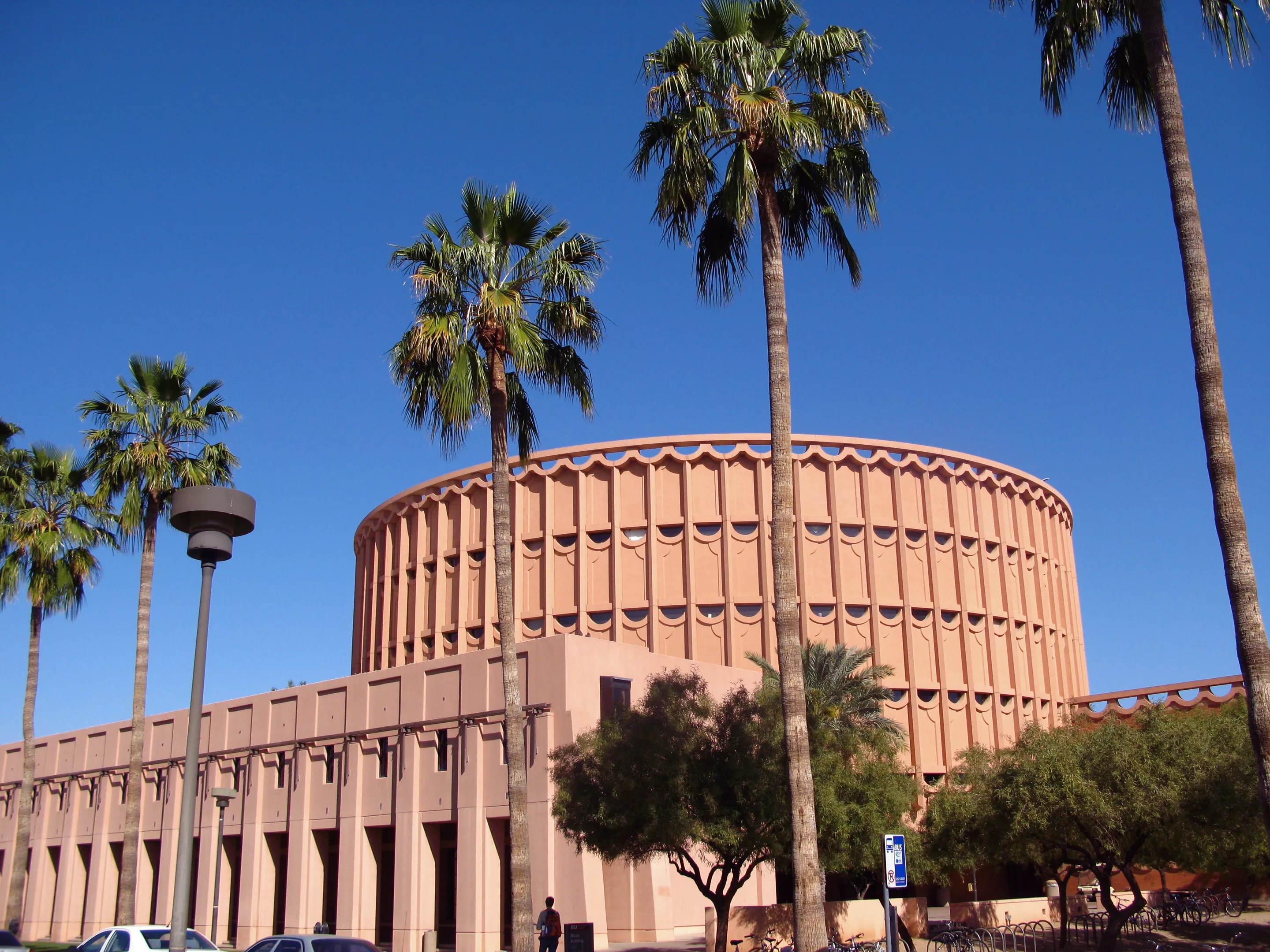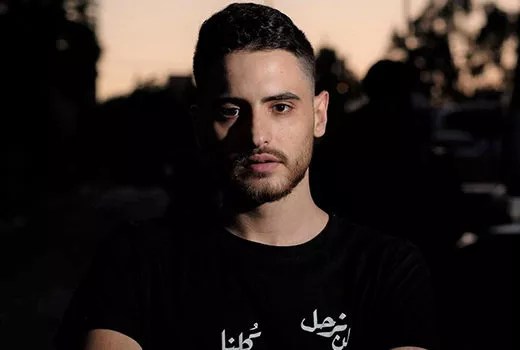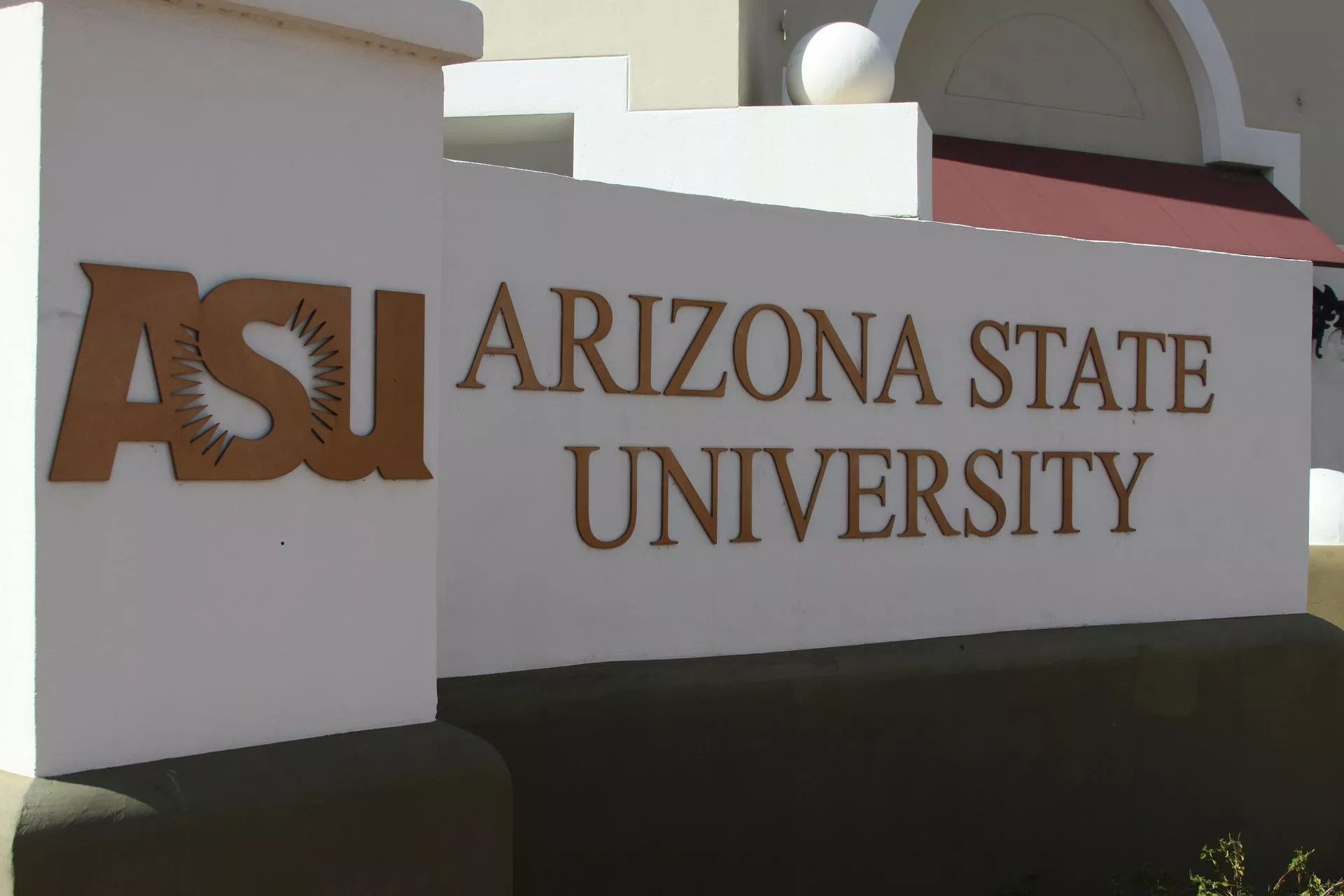
Kevin Dooley

Audio By Carbonatix
In November, somebody plastered flyers all over Arizona State University’s campus in Tempe spouting, “Who controls the world? Jews do.”
But this week, Jewish students at ASU feel out of control and powerless as the campus prepares to host a public speaker who calls Jewish people “neo-Nazis.” Student fees are paying for the event, which will put nearly 10 grand into the speaker’s pocket.
Controversy over the symposium has erupted, with Jewish and Muslim students debating where to draw the line between free speech and hate speech. The event lands ASU in the middle, as it strives to promote robust debate but faces allegations of hypocrisy.
Anti-Semitic propaganda is nothing new to ASU.
Similar campaigns ran twice in 2020, with posters reading “Hitler was right,” “unity of our blood,” and other anti-Semitic slogans posted all over campus by the Goyim Defense League, a network of internet troll and conspiracy theorists.
At the time, ASU President Michael Crow said in an official statement, ” Arizona State University has a long history of opposing anti-Semitic rhetoric and acts of intimidation whether they occur on our campuses or in the community. We reject and will not accept anti-Semitism or hateful rhetoric of any kind.”
This week, Jewish groups both on and off campus are asking ASU not to break that promise as the university prepares to host a speaker who makes Jewish students and faculty members say they’re scared.
Two Palestinian culture clubs at the university jointly invited Mohammed El-Kurd, a Palestinian activist and poet who’s described by Jews and gentiles alike as a “known anti-Semite,” to speak to students this Sunday.

Mohammed El-Kurd
Harvard University
ASU’s Undergraduate Student Government approved nearly $10,000 last week to pay El-Kurd’s speaker fee. The sum comes from a programming fee of $25 per semester paid by all students.
“Student fees should never be used to fund hate speech,” said Liora Rez, founder of New York City-based watchdog group StopAntisemitism.
Jewish students like Elizabeth Gofman, a third-year dietetics major and ASU’s Israel on Campus Coalition fellow, are helping to pay El-Kurd without any say in the matter.
“Knowing that my dollars are funding somebody coming to tell my people why we shouldn’t exist, it’s heartbreaking,” Gofman said.
El-Kurd’s activism has long been colored by anti-Semitism, racism, homophobia, and profanity.
Last May, he responded to a tweet about Holocaust education from Jewish author Ben Freeman, who is also gay, saying, “SHUT THE FUCK UP MY GOD YOU ARE SO DELUDED.”
SHUT THE FUCK UP MY GOD YOU ARE SO DELUDED. YOU ARE KILLING MURDERING BOMBING ETHNICALLY CLEANSING COLONIZING LYNCHING KRISTALLNACHTING US IN REAL TIME CURRENTLY RIGHT NOW AND YOU HAVE THE NERVE TO MAKE HOLOCAUST ANALOGIES WHERE DO YOU GET THE GULL WHERE DO YOU GET THE AUDACITY https://t.co/kZPwNZTB1y
— Mohammed El-Kurd (@m7mdkurd) May 12, 2021
El-Kurd also tweeted in June that Jewish Israelites are “terrorists” and “genocidal.”
He even likened Israeli Jews to Nazis, a harmful analogy that devalues the lives of the 6 million Jewish people who were exterminated in the Holocaust.
During Israel’s 11-day conflict with Hamas in the Gaza Strip in May, El-Kurd asserted that Zionists have an “unquenchable thirst for Palestinian blood.”
To add a splash of racism to the anti-Semitism, in March he tweeted, “‘Ancestral homeland?’ Then explain why y’all can’t walk around Jerusalem without getting sunburnt?”
When King David conquered Jerusalem in 1000 B.C., he established it as the capital of the Jewish kingdom.
“I’m disappointed in the university as a Jewish student,” Gofman said. “It’s hard knowing somebody is coming to my campus, my home away from home, telling me I deserve to die because of where my ancestors are from. It’s very, very scary.”
In his debut poetry collection Rifqa, El-Kurd peddled the dangerous, totally fabricated trope that Israeli soldiers “harvest organs of the martyred [Palestinians to] feed their warriors our own.”
“It’s hard knowing somebody is coming to my campus, my home away from home, telling me I deserve to die because of where my ancestors are from.” – Elizabeth Gofman
That memoir also contains beautiful words that touched the hearts of Palestinian-Americans at ASU and beyond.
That’s the case for Nora Abooji, a fourth-year student studying political science and Arabic. She holds a leadership role in Students for Justice in Palestine, one of the two student organizations that invited El-Kurd to speak.
“Rifqa is incredibly important to me because he is able to express himself and the story of his life, one of oppression, into a book of poetry,” she said. “He channeled his pain into written form.”
The Israeli-Palestinian conflict is intensely personal for El-Kurd.
Israeli forces expelled him from his home in the volatile neighborhood of Sheikh Jarrah in East Jerusalem, which prompted him to move to the United States.
“I am a Palestinian-American,” Abooji said. “I have the privilege of not living under the violence of Israelis.”
Still, El-Kurd employs a “wholesale demonization” of Jewish people, according to the New York City-based Anti-Defamation League, “especially using language historically wielded against Jewish communities.”
Rez’s group, StopAntisemitism, sent a letter to Crow on Wednesday demanding the university intervene. In the letter, she expressed concern that El-Kurd is “monetarily incentivized to speak at college campuses nationwide while spewing his anti-Jewish hatred.”
ASU took no action.
“As a public university, ASU adheres to the First Amendment and strives to ensure the fullest degree of intellectual freedom and free expression,” university spokesperson Jerry Gonzalez told Phoenix New Times. “All individuals and groups on campus have the right to express their opinions, whatever those opinions may be, as long as they do not violate the student code of conduct, student organization policies, and do not infringe on another student’s individual rights.”

Pixabay
Gonzalez assured that university staff, including ASU police, would be present to “support and promote a safe environment where the free exchange of ideas can take place,” but declined to elaborate.
But members of campus Jewish groups said they find little appropriate about the university’s tolerance of such ideas, and feel the symposium flies in the face of that code of conduct.
“We strongly condemn the use of undergraduate student government funding to host a blatantly anti-Semitic speaker,” stated a release from a consortium of Jewish and pro-Israel groups on campus, including Hillel Jewish Student Center and Chabad at ASU.
But for Abooji, the Muslim student, this opposition is silencing Palestinian voices on campus.
“The excruciating pressure put on this speaker has not ever been applied to any other student group,” she said.
El-Kurd’s disgust at Israel and disregard for Jewish opinions toes the line between chauvinism and activism, Muslim students believe.
“There’s a difference between being loud and obnoxious and being anti-Semitic or a bigot,” Abooji said. “I would never want to minimize the words he said that hurt people in the ASU community, but he is still an important figure to Palestine even if I don’t agree with everything he said.”
Jewish students don’t try to refute the free speech argument.
They do, however, feel voiceless and sense hypocrisy.
“Free speech is a beautiful thing, but the Jewish community was not involved in the conversation of whether or not this constitutes hate speech,” said Gofman. “It’s very frustrating as a Jewish student, especially when we have leadership telling us that ASU will never stand for anti-Semitism.”